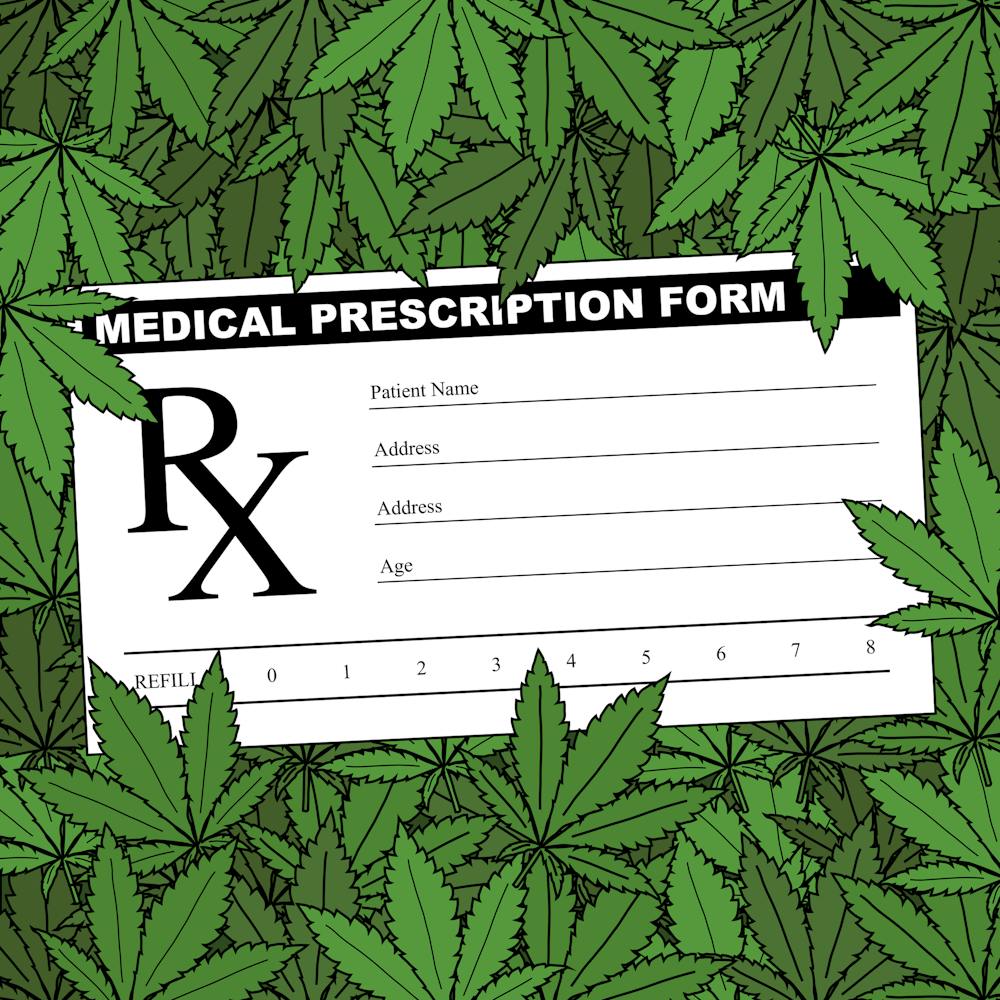Meghan Sawitzke is a junior journalism major and writes “Acts of Random Kindness” for The Daily News. Her views do not necessarily reflect those of the newspaper.
Editors note: This story has been updated to correct an error.
Do you feel a rush of warmth consumes your body? Do you feel an urge to laugh at every little thing and smile uncontrollably? Do you feel happy as all your stress melts away?
You’re high, but don’t worry it won't kill you.
According to the Cleveland Clinic, marijuana (THC) is classified as a hallucinogen. Which may temporarily cause uncomfortable symptoms and side effects.
When marijuana is used irresponsibly you may consume too much resulting in nausea, vomiting, paranoia, anxiety, temporary cognitive dysfunction and discomfort. This is considered an overdose, because it is too much for your body to tolerate.
When under the proper prescription and supervision, it can mean a better lifestyle for individuals suffering crippling diagnoses.
Medical Marijuana should be legal everywhere; proof of prescription and documentation from doctors should prevent disciplinary action unless it is causing harm to others.
However, doctors should only allow certain methods, such as edibles or lotions, to allow your body to absorb marijuana through the skin. These regulations would provide less concern for lung tissue damage and help regulate the dose consumed.
This substance can be used to treat or ease symptoms accompanied by different illnesses such as Alzheimer’s, ALS, HIV/AIDS, Crohn’s, Epilepsy and seizures, glaucoma, PTSD, multiple sclerosis, and more according to Mayo Clinic.
“My uncle with Parkinson’s used it at night to help him sleep and he’s a completely different person when he has his gummies. He doesn’t twitch and stutter, it’s like he doesn’t have Parkinson’s,” Mason Malmborg, a freshman at Ball State said.
Although there is rumor causing fear of addiction, this drug is far less dangerous than other options with restrictions to certain strains of cannabis and age limits.
The use of prescription painkillers like opioids often leads to heroin or crystal meth abuse because it is easier to access.
Historically, we can look back at the nationwide ban on the sale and import of alcoholic beverages in 1920. This act failed due to the increase in criminal activity involving alcohol and the decline in tax revenue. History may be repeating itself with a new substance.
With the prohibition of marijuana, the risk becomes greater.
Not only would legalizing marijuana increase tax revenue, but it would also prevent future potential crimes such as smuggling, selling, or use of the product. If people developed speakeasies during the Roaring 20s, what is being created in this era to disobey the law?
Even though marijuana is illegal in certain states, residents can simply drive a few hours to obtain the substance. People even find avenues in illegal areas that are extremely dangerous increasing the risk of harm at interaction or laced products.
The CDC created data based on 2023 estimated deaths from drug and overdose usage and found that from synthetic opioids (fentanyl) 74,702 people have died, while psychostimulants (including methamphetamine) caused 36,251 deaths and cocaine caused 29,918 deaths.
According to the National Center for Drug Abuse Statistics, “95,000 Americans die from alcohol-related causes annually … 2,200 people die from alcohol poisoning annually and 6 people die daily due to alcohol poisoning.”
Although legalizing recreational marijuana can be controversial, it would cause more harm than good to create another prohibition. The best thing the United States can do is create certain restrictions and help teach people how to consume the product safely, much like we do with alcohol.
The use of recreational marijuana does not benefit individuals other than a temporary high and “feel good” physical and psychological state. It can reduce the number of crimes, overdoses, and deaths related to drug abuse and health concerns.
When added precautions are enforced, the use of marijuana to treat crippling symptoms should be legal across the United States to help those suffering.
Contact Meghan Sawitzke with comments at meghan.sawitzke@bsu.edu or on Twitter @MSawitzke.




